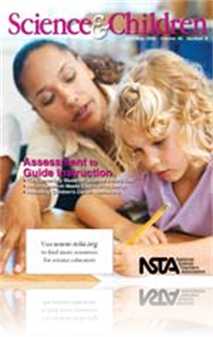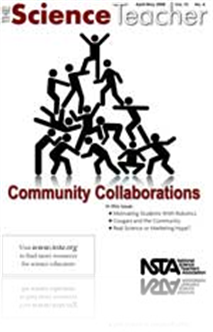All Resources
Journal Article
Science Sampler: Engineering—Adventures in teaching
The Adventure Engineering Academy provides teacher participants with a model of inquiry-based instruction that integrates the engineering design process as used in authentic science environments. Participants were provided with background information...
Journal Article
The Elementary Students’ Science Beliefs Tests
To help teachers guide their instruction, a university science educator who researches students’ science beliefs and a fifth-grade classroom teacher investigated how elementary students interpreted some of the ideas found within the National Scienc...
Journal Article
This monthly feature contains facts and challenges for the science explorer. ...
Journal Article
Assessing Children’s Career Aspirations
In the past several years, Science and Children has invited preservice and inservice teachers to participate in national studies of students’ ideas about scientists (Barman 1997), animals (Barman et al. 2000), and plants (Barman et al. 2003). You ...
Journal Article
Safer Science: Consumer “Science” in Chem Labs?
English, mathematics, social science, and other nonscience classes are being held in science laboratories during unassigned laboratory time. However, science laboratories are unsafe places. They contain hazardous chemicals, energy utility sources (ga...
Journal Article
A Consumer Guide to Professional Development
How can a science teacher find professional development (PD) opportunities that are meaningful, coherent, and sustained that will foster teacher and student learning? The authors believe that science teachers can and should be savvy consumers of PD�...
Journal Article
Real Science or Marketing Hype?
The Center for Nanoscale Chemical-Electrical-Mechanical Manufacturing Systems (Nano-CEMMS) at the University of Illinois, in collaboration with local Champaign-area teachers, has developed classroom activities designed to introduce nanotechnology to ...
Journal Article
Tech Trek: Make your own mashup maps
Mashup is a new technology term used to describe a web application that combines data or technology from several different sources. You can apply this concept in your classroom by having students create their own mashup maps. Google Maps provides you...





